Bananas, the world's fourth most cultivated food crop, are under serious threat. That is from diseases like Moko, Black Sigatoka, and, above all, the relentless, rapidly advancing fungus TR4. A diligent search for a resistant variety is underway, but a solution is needed to safeguard non-resistant Cavendish bananas. In cooperation with Wageningen University & Research (WUR), A Banana Company (A-BC) is developing a system. It is already in the test phase in the Philippines, the growing country hardest hit by TR4.
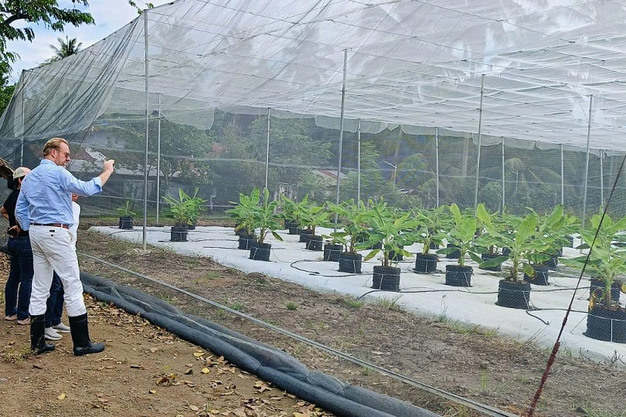
This fungus affected banana tree roots, so the A-BC and WUR system uses substrate cultivation. "In areas where TR4 has destroyed entire plantations, cultivation, including Cavendish bananas, can resume," states Jasper van Roon, CEO of A-BC. "In itself, that would already be a great success, but our system should also enable banana growers to save water, use fewer chemicals, and, to top it off, increase average yields."
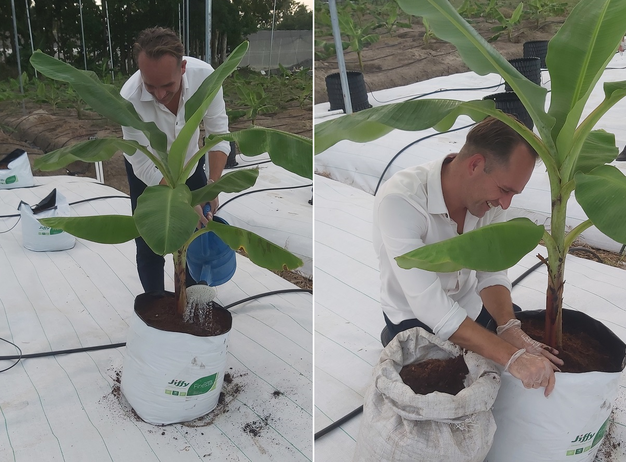
"In many growing areas, that's currently around 23 kilograms per plant due to disease pressure and vegetative stress. That could increase by 30% to 30 kilograms. In other words, it has a three-fold benefit: saving on scarce resources, making cultivation more sustainable, and achieving much higher yields. Who wouldn't want that?" Jasper asks.
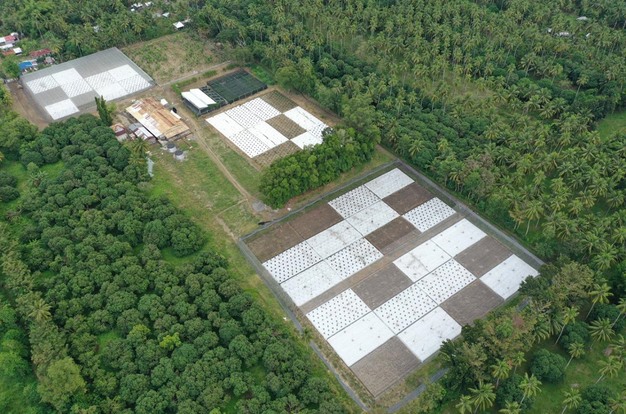
Advantages
He believes the new cultivation system, once marketed, will, thanks to precise irrigation, save 70% on water usage. And, by controlling the growing environment, reduce chemical use by 90%. "And if you must use plant protection products, the treatment can be very targeted. Crop dusters won't have to fly over the plantations as they do now."
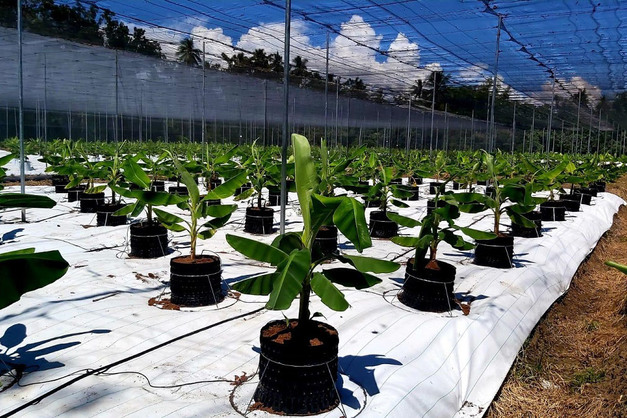
Big Data and AI
Achieving that goal requires careful plant need analysis. That is done by monitoring with sensors, humans, and multi-spectrum drones, which take continuous images of the plant's growth. Big data and an AI-driven irrigation system, very targeted watering, nutrient administration, and control applied where needed supplement that. "It seems an expensive system, but it actually costs a fraction of the gains it makes by saving water and resources and increasing average yields," Jasper concludes.
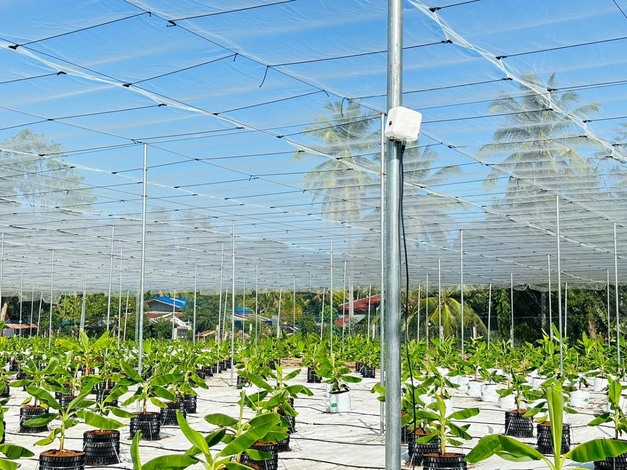
The Netherlands
Developed in the Netherlands, this cultivation configuration uses sensors and, in the next phase, AI that is unique in the sector. According to Jasper, it offers a total solution validated at the highest achievable scientific level.
A Banana Company
[email protected]
www.abananacompany.com
